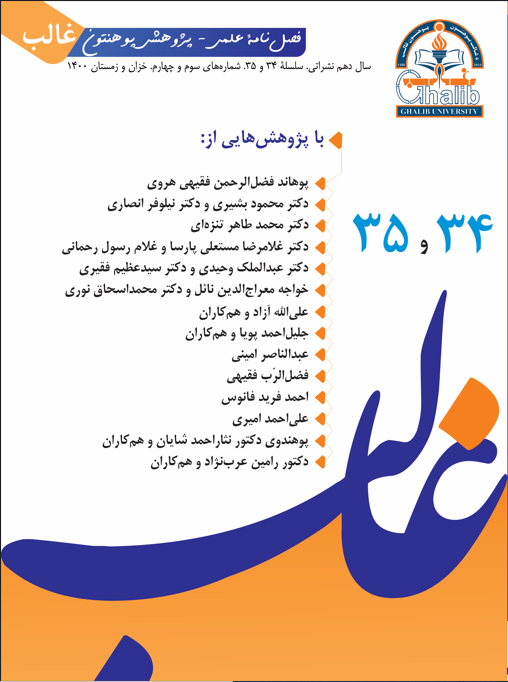4. Sociological critique of Sakha's poetry
(By examining the collection of poems of the Chahaar Fasl_e_ Zesht_e_ Taqwim)
DOI:
https://doi.org/10.58342/.v10i34-35.15Keywords:
Sakha, Chahaar Fasl_e_ Zesht_e_ Taqwim and sociological critique.Abstract
Literature derives its identity from language and society. This child of the community can play an important and effective role in improving the difficulties and problems of his environment. Poetry, perhaps, plays the most important role in our society. Addressing the role of poetry at different times in society can lead to constructive dialogue There are many poets living in our society and composes in front of his community; Among these, Sakha can be considered as a committed generation of poetry in Afghanistan and Herat today To this end, this library research has been formed with the aim of sociological critique of Sakha's poetry, according to the Chahaar Fasl_e_Zesht_e_ Taqwim. The method of research is analytical-critical, which has benefited from the theoretical discussions of sociological critique, and especially from the point of view of George Lucs, who considered literary works to be the smaller world in the larger world The question that we have sought to answer in this study has been: Sakha's poem can be called a socially committed poem, and if the answer is yes, what concepts have been addressed according to the Chahaar Fasl_e_Zesht_e_ Taqwim? The authors' findings show that: The collection of poems of Chahaar Fasl_e_Zesht_e_ Taqwim shows its community well. In general, the poems in this collection are half social poems and half emotional / romantic poems. Issues such as war, improper governance, the nation's distance from the state, the dispersal of the nation and the inversion of standards, the problem of theft and despair, are major issues that have sometimes existed in this collection, sometimes critically and sometimes as resistance poetry.













